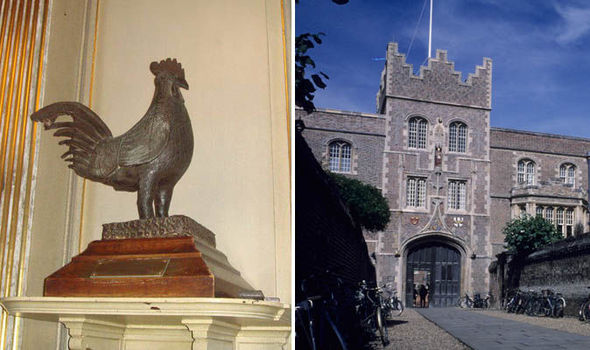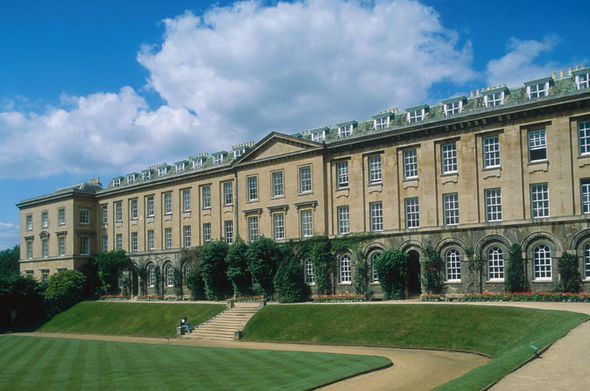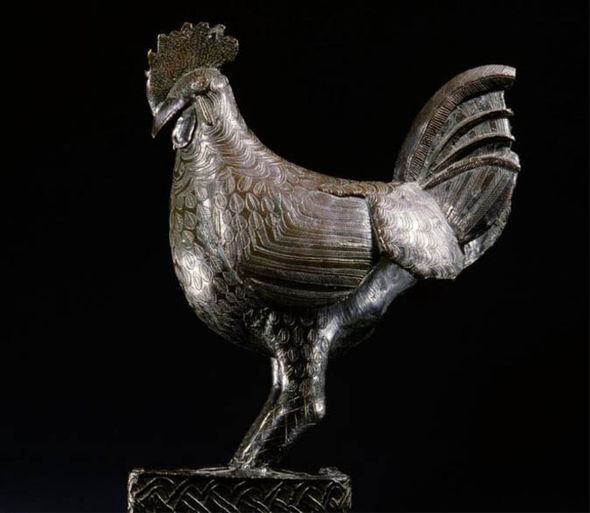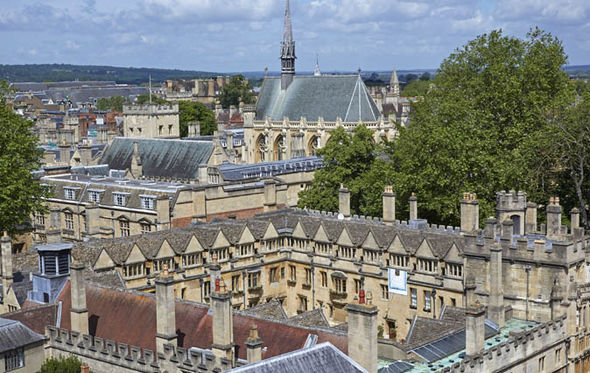‘Racist’ Cambridge cockerel taken down after university bows to pressure from students

STUDENTS have forced a Cambridge University college to remove a statue of a cockerel which has adorned its dining hall for years — because they complain it is racist.
Jesus College has said it will consider repatriating the piece of art after students argued displaying it is a celebration of colonialism.
The statue, known as the okukor, is one of 2,000 which sit in museums and precious collections around the globe.
But in their west African homeland, there are only 50 of the Nigerian Benin Bronze statues after looting in the 19th century.
A debate over the stolen cockerel followed the Rhodes Must Fall Movement which spread from South Africa to Oxford's Oriel College when students demanded a statue of white supremacist colonialist Cecil Rhodes be removed.
Grown men cried after the return of pieces in 2014
Ore Ogunbiyi
The college initially offered a lengthy consultation but kept the statue after being accused of "re-writing history".
However, students at Jesus College have seen more success with the piece already being taken off display.
The college said it was a "complex" matter which must be discussed, to help decide where exactly the statue belongs.
The cockerel was bequeathed in 1903 to the college by George William Neville, man army captain whose son attended the college.
A debate last month was opened by Amatey Doky, a Ghanaian student who said the okukor was stolen on a punitive expedition in reprisal for the killing of British traders in which the city was destroyed and 3,000 pieces of art stolen.
Another student, Ore Ogunbiyi told the meeting: "We spoke to a bronze repatriation expert who said grown men cried after the return of pieces in 2014."
Yesterday, a statement from Jesus College said: "Jesus College acknowledges the contribution made by students in raising the import an but complex question of the rightful location of its Benin Bronze, in response to which it has permanently removed the okukor from its hall.
"The college commits to work actively with the wider university and to commit resources to new initiatives with Nigerian heritage and museum authorities to discuss and determine the best future for the okukor including the question of repatriation."
The college's original emblem was the five wounds of Jesus, but in the 16th century that had become a symbol of rebellions protesting at the suppression of monasteries. It is believed to have been replaced in 1575 by a shield with the personal coat of arms of John Alcock the bishop and architect who constructed the college.
Политика конфиденциальности | Правила пользования сайтом










